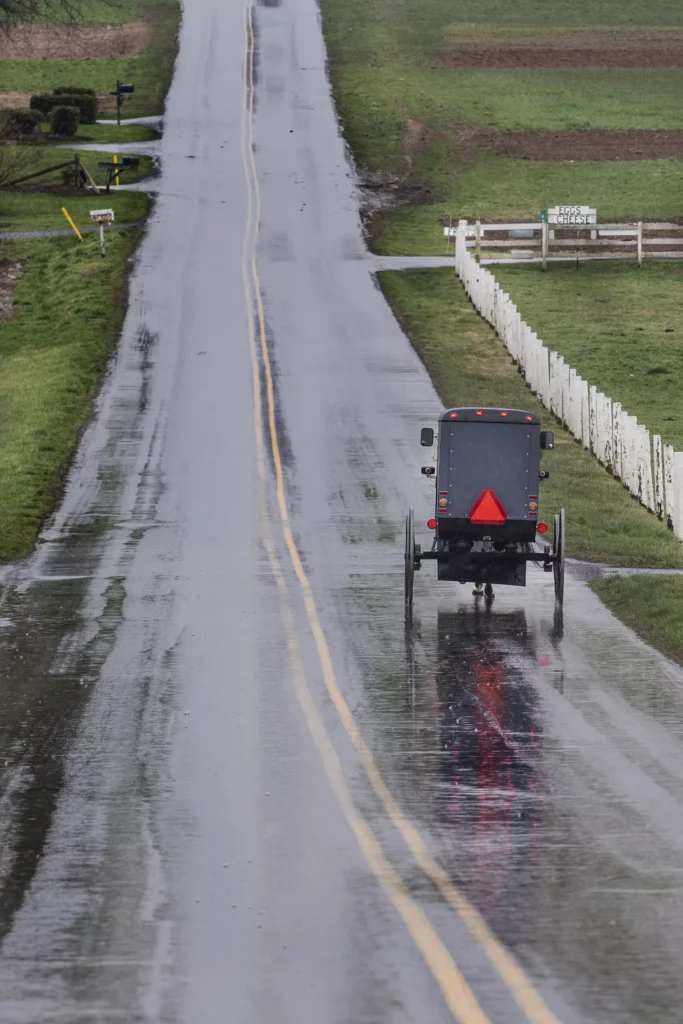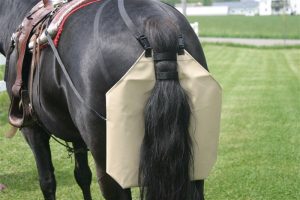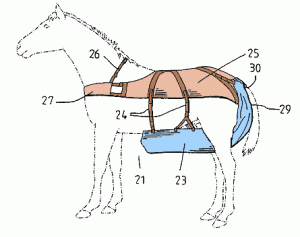Amish Farm Fined $250K, Facing Jail Time for Humanely Raising and Selling Food to Willing Customers
Amos Miller and his family has been running Miller’s Organic Farm for over a century, providing willing and highly satisfied customers with milk, chicken, beef, and eggs. All of the food coming from Miller’s farm is beyond organic, humanely raised in a non-factory setting and the animals treated with dignity as they spend their entire lives naturally and stress-free out on pasture. By any moral standard, Miller’s farm is the leading example of what farming in America should look like.
Unfortunately, because Miller uses humane techniques and treats his animals well, this has put a government target on his back. Recently, federal Judge Edward G. Smith, imposed sanctions on his farm, ordering the family farm to pay over $250,000 in fines or go to jail. Because the Millers don’t use the USDA factory farm methods, this makes them non-compliant and thus an enemy of the state.
“In order to effect defendants’ future compliance, by making them aware of the seriousness of their violations and the consequences for future violations, defendants are ordered to pay to the United States, within 30 days of the date of entry of this Order — and pursuant to written instructions that the United States will provide to defendants—a fine of $250,000, or face further monetary and other penalties, possibly including imprisonment of Amos Miller,” the order says.
“Smith also ordered Miller to reimburse USDA’s Food Safety and Inspection Service (FSIS) for its enforcement costs, totaling $14,436.26. Miller has 60 days to make the reimbursement,” according to Food Safety News.
According to the USDA, the farm is not complying with USDA regulations on how to label and process their food. But Amos says the methods which they use pre-date the USDA and the farm and its members have a right to free assembly and the right to choose how their food is processed without the USDA dictating to them on how to do it.
Amos Miller and his family has been running Miller’s Organic Farm for over a century, providing willing and highly satisfied customers with milk, chicken, beef, and eggs. All of the food coming from Miller’s farm is beyond organic, humanely raised in a non-factory setting and the animals treated with dignity as they spend their entire lives naturally and stress-free out on pasture. By any moral standard, Miller’s farm is the leading example of what farming in America should look like.
Join Our Telegram Chanel Here: Ignore The Mainstream Media
Unfortunately, because Miller uses humane techniques and treats his animals well, this has put a government target on his back. Recently, federal Judge Edward G. Smith, imposed sanctions on his farm, ordering the family farm to pay over $250,000 in fines or go to jail. Because the Millers don’t use the USDA factory farm methods, this makes them non-compliant and thus an enemy of the state.
“In order to effect defendants’ future compliance, by making them aware of the seriousness of their violations and the consequences for future violations, defendants are ordered to pay to the United States, within 30 days of the date of entry of this Order — and pursuant to written instructions that the United States will provide to defendants—a fine of $250,000, or face further monetary and other penalties, possibly including imprisonment of Amos Miller,” the order says.
“Smith also ordered Miller to reimburse USDA’s Food Safety and Inspection Service (FSIS) for its enforcement costs, totaling $14,436.26. Miller has 60 days to make the reimbursement,” according to Food Safety News.
According to the USDA, the farm is not complying with USDA regulations on how to label and process their food. But Amos says the methods which they use pre-date the USDA and the farm and its members have a right to free assembly and the right to choose how their food is processed without the USDA dictating to them on how to do it.
To be clear, not a single one of the farm’s customers has filed a complaint. The USDA is unilaterally going after the farm for failing to use their approved slaughter houses which stress and harm the animals before they are killed. Even if an animal is pasture raised and cared for, the USDA requires it be loaded into a truck and hauled to one of its approved slaughter houses where it spends its last moments alive surrounded by death and corralled into tiny pens with other animals before being killed by a person who never raised it.
On the contrary, Amos, who is Amish, prays with the animals before they are sacrificed in peace on his farm.
According to the farm, their human and chemical-free methods are the reason people seek them out and join their private food club.
The ever increasing environmental toxins from the overuse of synthetic chemicals makes modern farming very questionable. The ethical part, consuming animal foods, leaves doubts in the minds of many. Members of our community have joined us because they have chemical sensitivities and only started to heal and thrive once they began consuming REAL nutrient dense foods. They depend on our farm foods. Members with a vegan background started enjoying animal foods again once they realized that the death of an animal doesn’t have to be cruel.
Now, Amos has been forced into a corner, facing the possibility of spending time behind bars and losing the farm which has been in his family for decades. The farm has to spend tens of thousands on an attorney to fight for them in court and have since launched a GoFundMe campaign to raise those funds.
If you’d like to help this farm continue to provide safe and human food to his many willing and happy customers, you can do so here.
Source/Credit : https://thefreethoughtproject.com/









 A decision has finally been made in the highly anticipated case in which the State of Wisconsin was trying to sue an Amish man for not following Wisconsin’s Livestock Premise Registration law. On Tuesday, Clark County Circuit Court Judge Jon Counsell ruled that Emanuel Miller Jr. of Loyal, Wisconsin does have a ‘religious right’ to be exempt from the law, which requires anyone who keeps, houses, or co-mingles livestock to register their premises with the state.
A decision has finally been made in the highly anticipated case in which the State of Wisconsin was trying to sue an Amish man for not following Wisconsin’s Livestock Premise Registration law. On Tuesday, Clark County Circuit Court Judge Jon Counsell ruled that Emanuel Miller Jr. of Loyal, Wisconsin does have a ‘religious right’ to be exempt from the law, which requires anyone who keeps, houses, or co-mingles livestock to register their premises with the state. The Amish believe the requirement infringes on their religious believes because it could eventually result in the tagging of all animals, or the ‘Mark of the Beast.’ But prosecutors felt with mandatory premise ID, the process of tracking down potentially at-risk farms would be much easier if there were an animal disease. The issue of “government ease” fell short in court to the issue of “religious rights.”
The Amish believe the requirement infringes on their religious believes because it could eventually result in the tagging of all animals, or the ‘Mark of the Beast.’ But prosecutors felt with mandatory premise ID, the process of tracking down potentially at-risk farms would be much easier if there were an animal disease. The issue of “government ease” fell short in court to the issue of “religious rights.” I spent Saturday morning at the local farmer’s market talking with some folks from our Amish community. One particular Amish farm family provides my family with homemade butter, cheese and milk. It is against the law in most states for a farmer to sell farm-fresh raw milk items without first having met extensive FDA guidelines. Because of the tyranny of Big Brother, we are compelled to never refer to these items by name. To protect ourselves from potential fines or incarceration for the dastardly act of selling and buying non-FDA approved milk, we make sure to speak in hushed whispers and use code words for the “product”. My Amish friends make sure to deliver the product to me in large mason jars with the words “FOR PET USE ONLY” written on top. Rather than giving my payment directly to them, I put my cash in an unguarded cigar box. The whole scene plays out like an illegal drug deal on a shadowy street corner. Welcome to America.
I spent Saturday morning at the local farmer’s market talking with some folks from our Amish community. One particular Amish farm family provides my family with homemade butter, cheese and milk. It is against the law in most states for a farmer to sell farm-fresh raw milk items without first having met extensive FDA guidelines. Because of the tyranny of Big Brother, we are compelled to never refer to these items by name. To protect ourselves from potential fines or incarceration for the dastardly act of selling and buying non-FDA approved milk, we make sure to speak in hushed whispers and use code words for the “product”. My Amish friends make sure to deliver the product to me in large mason jars with the words “FOR PET USE ONLY” written on top. Rather than giving my payment directly to them, I put my cash in an unguarded cigar box. The whole scene plays out like an illegal drug deal on a shadowy street corner. Welcome to America.